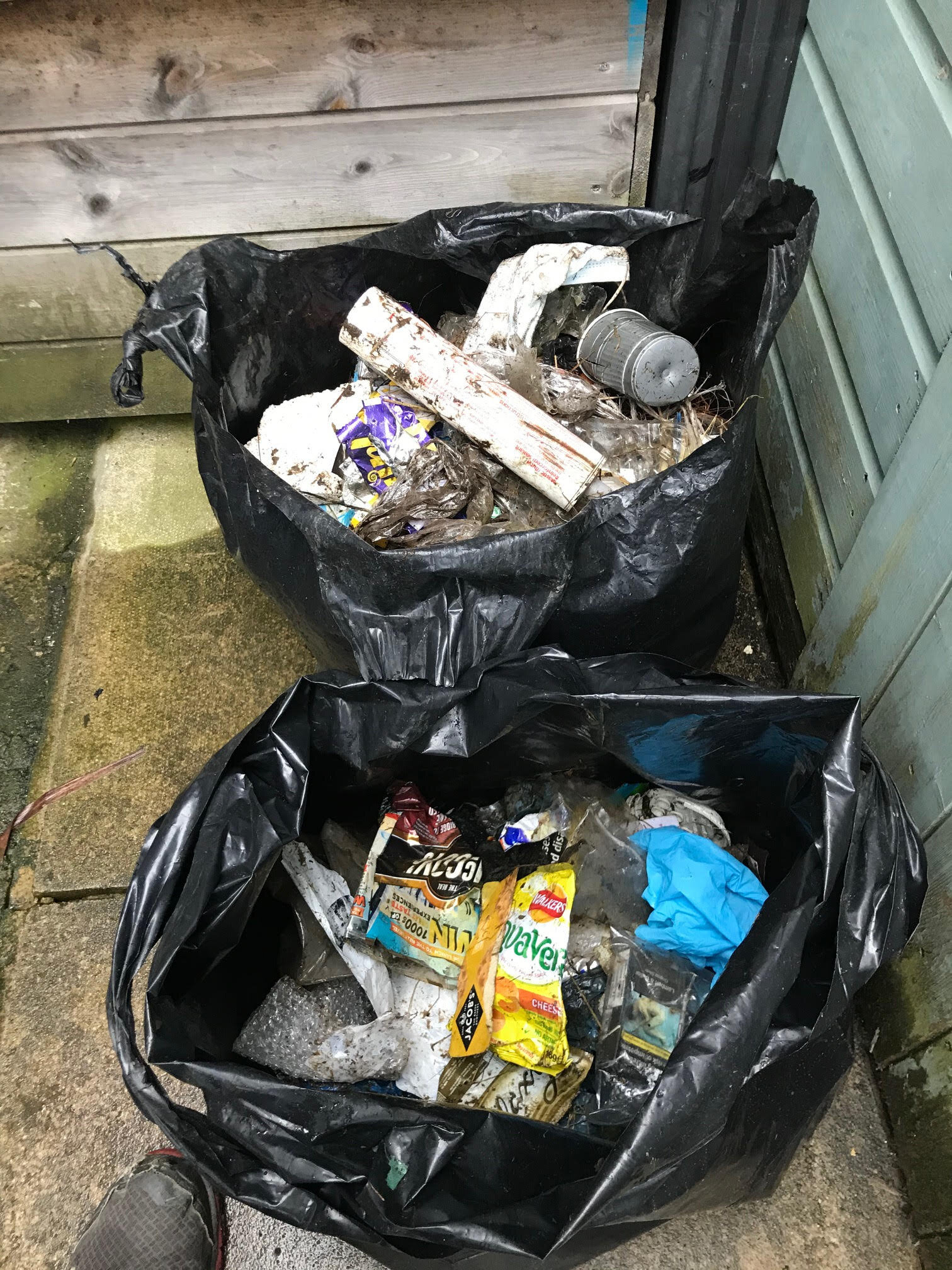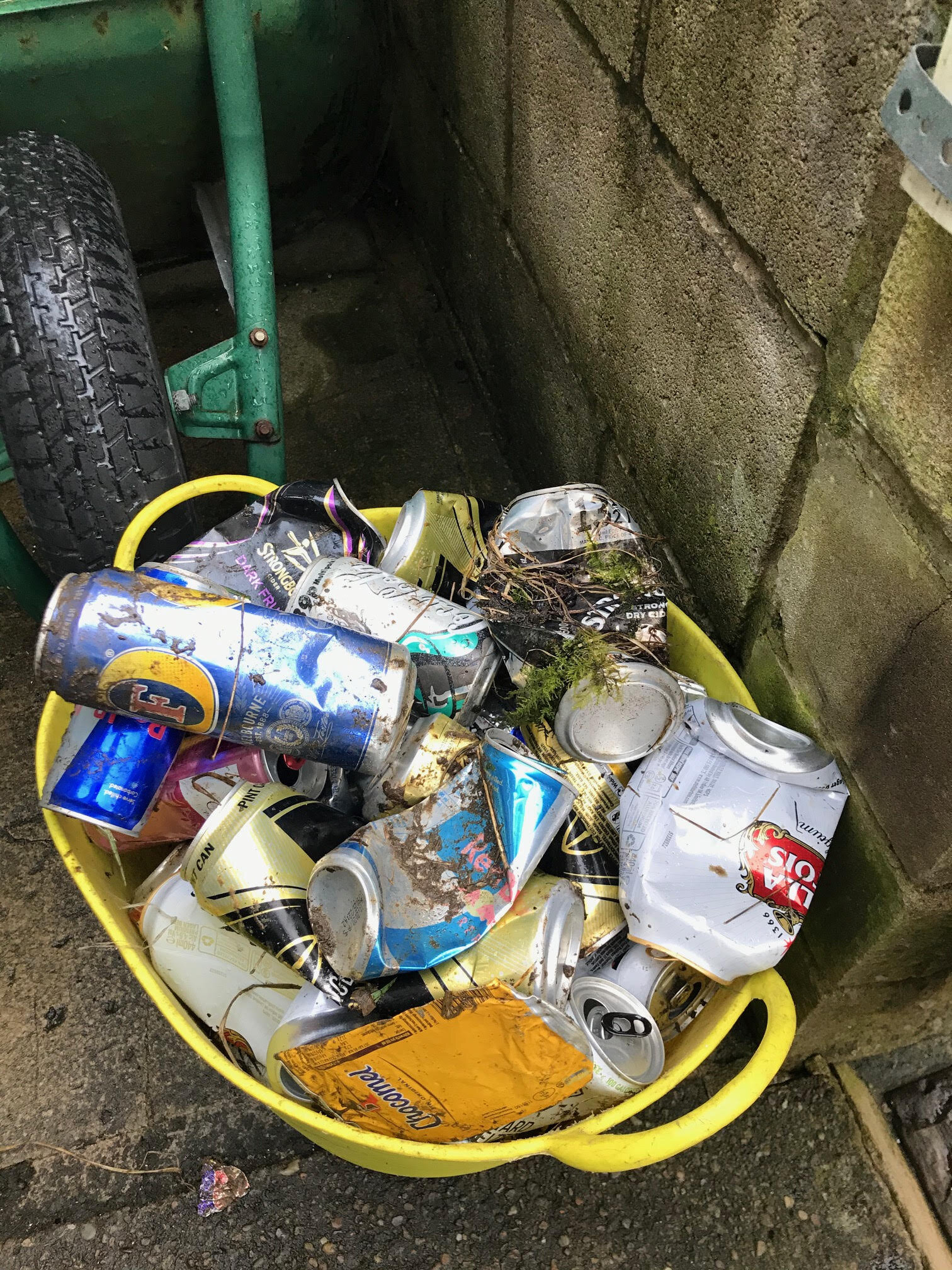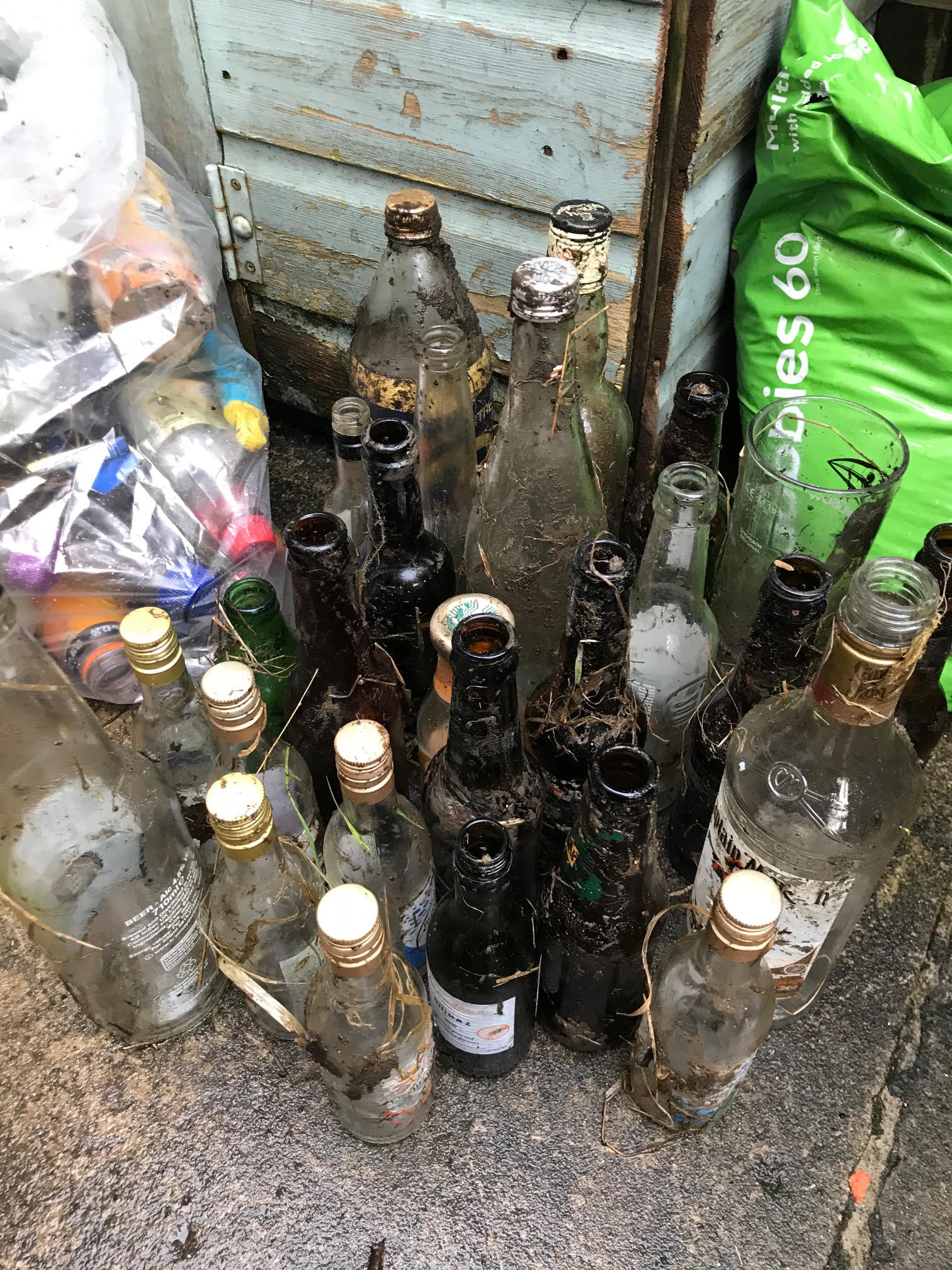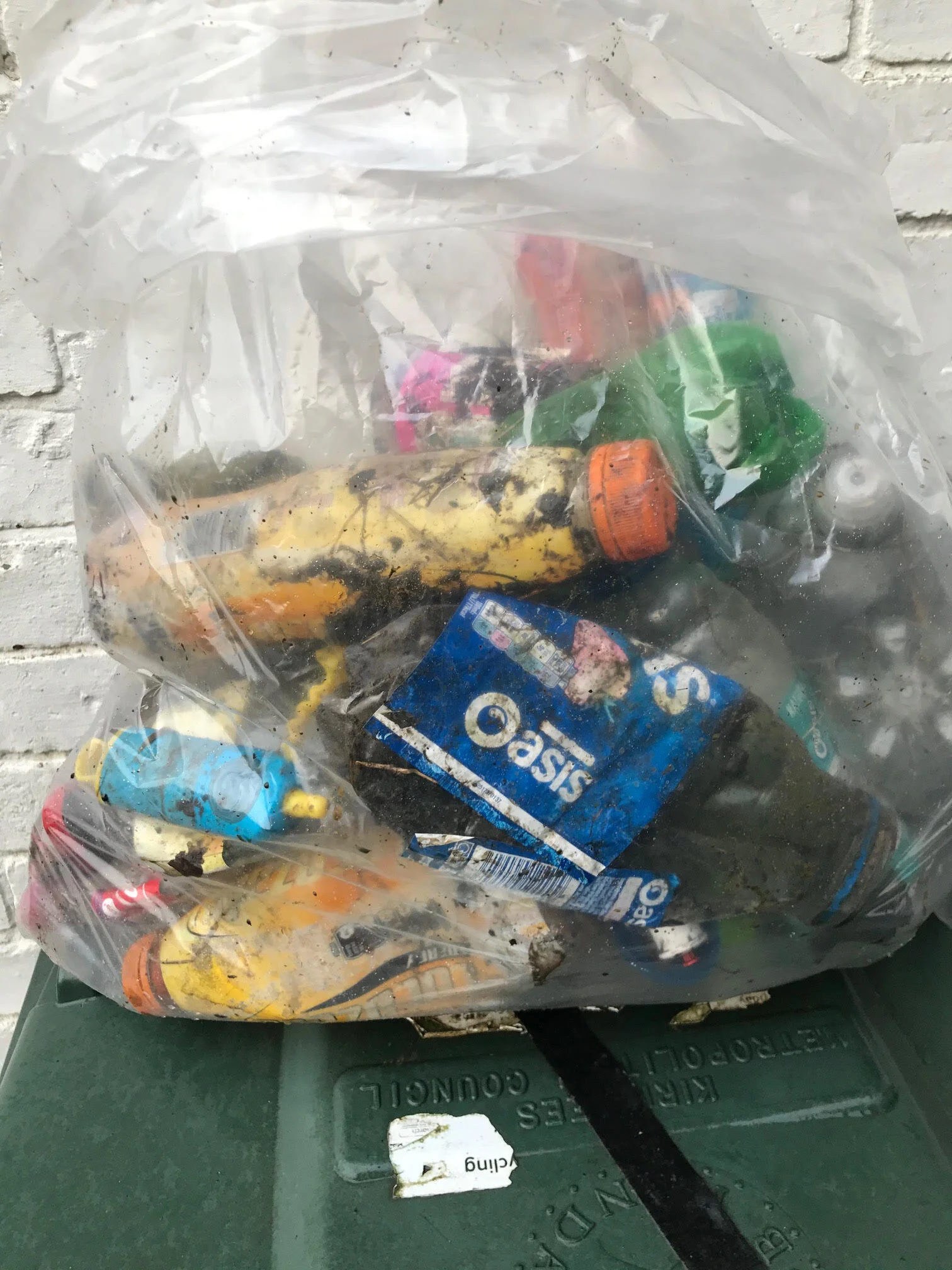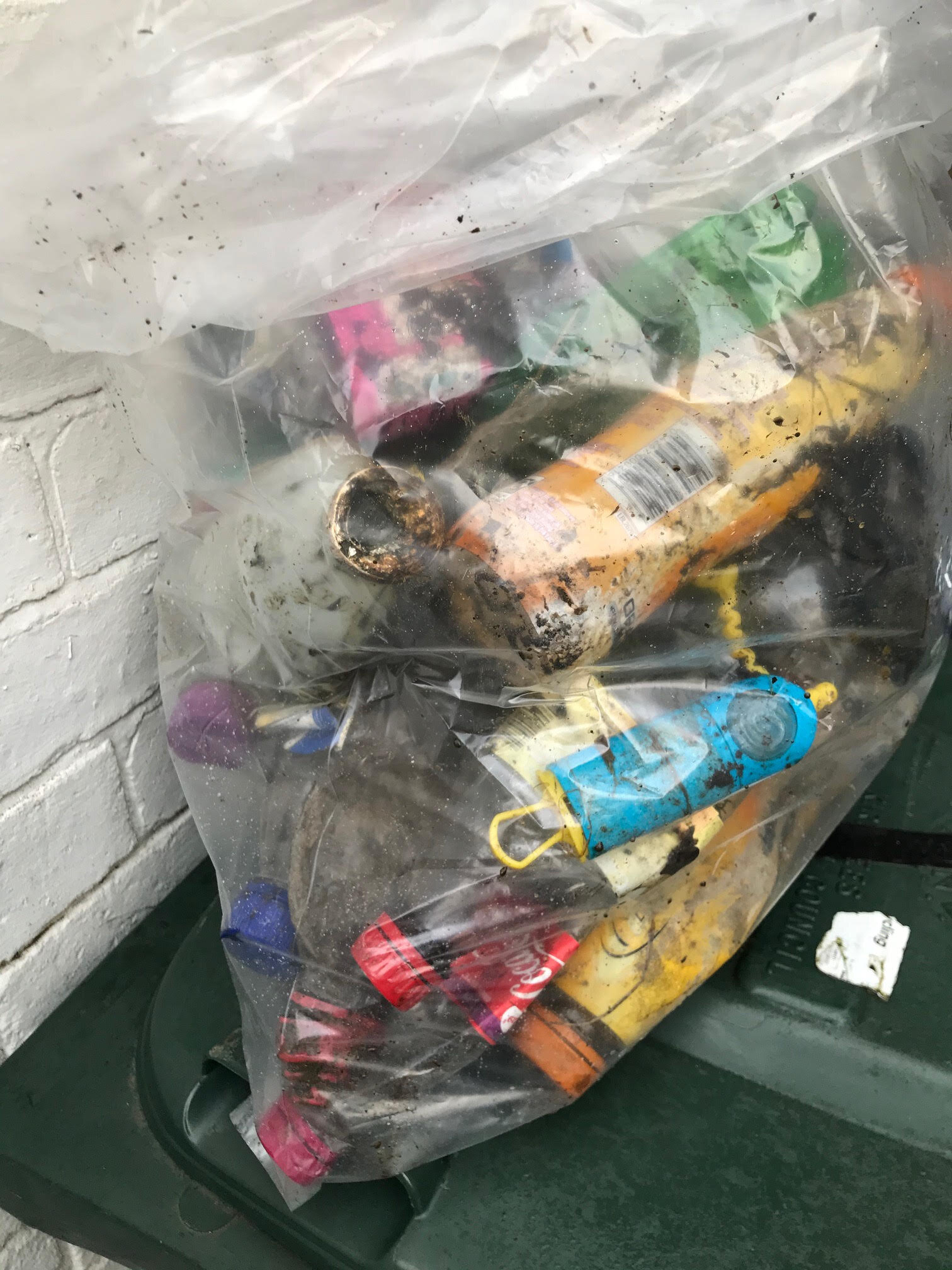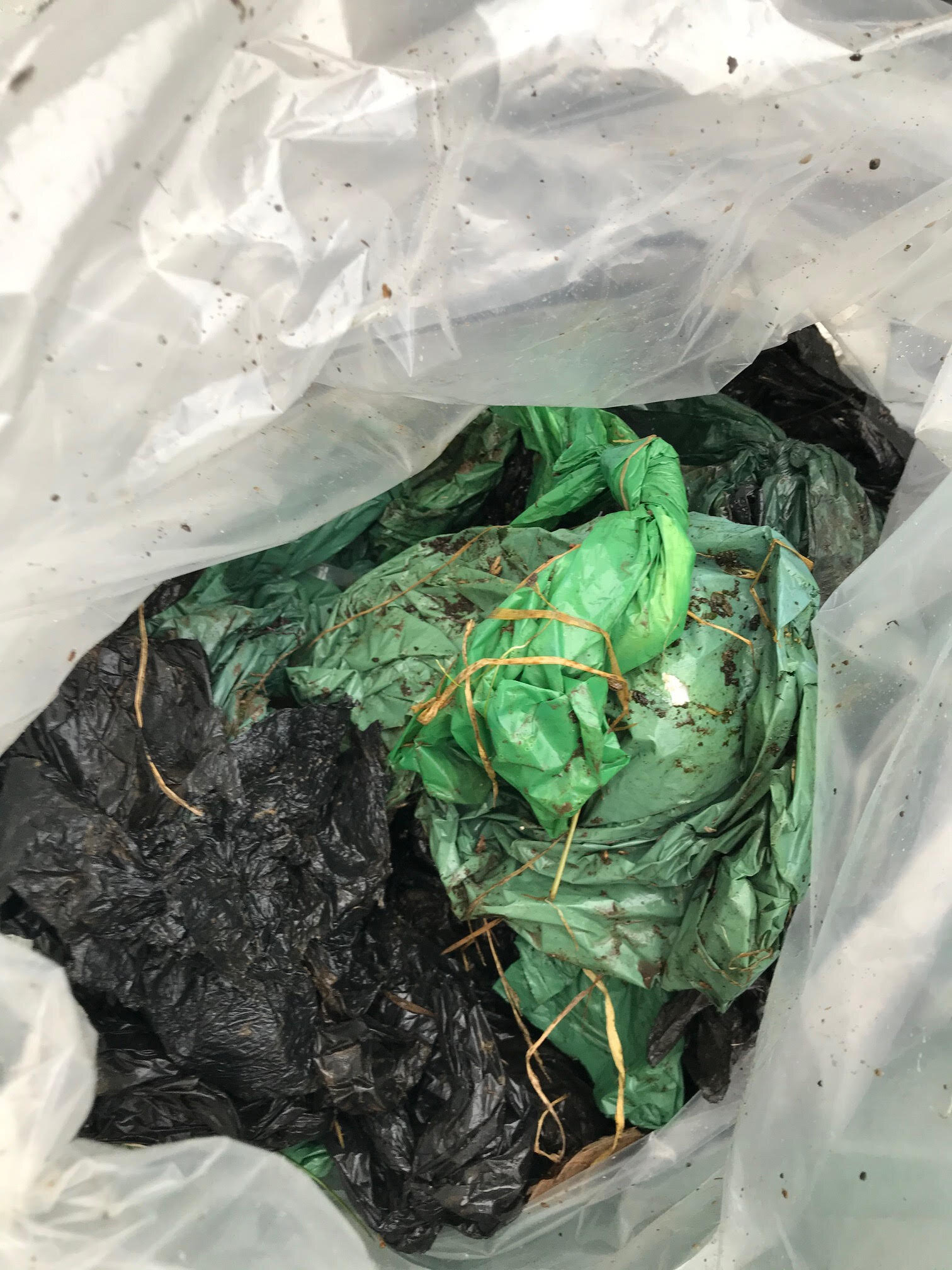Litter picking for a cleaner countryside
Litter in our countryside can be harmful for wildlife and the environment. For many of us, it also spoils our enjoyment of our open spaces.
Growing up in a rural Yorkshire Dales touristy village during the time of The Wombles (who collected and recycled litter left behind on Wimbledon Common), I can remember our primary school organising a litter pick one year.
A few years later, as a stroppy teenager, I remember a visitor to the village challenging me one day for dropping a sweet wrapper on the road outside my house. I’m a little embarrassed to tell you my response (I live here, I can do what I want) but think it’s important in the bigger story.
Whilst my response at the time was terrible, something stuck because it’s an incident I still remember and he must have made me pause and think over subsequent years because I’m now really conscious about dropping any litter.
I started climbing when I was 30 and, ever since then, the outdoors has been an important part of my life. Over the years, I’ve seen less regard for our countryside and more littering. We’re a throw away society, whether that’s plastic bottles, cans, cheap camping kit left behind or unsightly fly tipping.
What is litter?
The Campaign to Protect Rural England (CPRE) uses the DEFRA guidance to describe what constitutes litter:
“Litter is best defined as something which is improperly discarded by members of the public in an area. It includes sweet wrappers, drinks containers, cigarette ends, gum, apple cores, fast food packaging, till receipts, small bags…”
In legal terms, littering becomes an offence if it has been:
Dropped in a place where the public have a right of access such as publicly owned land or private land to which the public has access, such as a garage forecourt or a footpath across a field, and
It is open at least on one side to the air (eg. it would be an offence in a bus shelter but not in a phone box)
Importantly, to constitute an offence, it must be proven that the litter was thrown down, dropped or deposited and left or walked away from. DEFRA also advises that offenders should be given the opportunity to pick up the litter.
Why is litter such a problem?
Aside from litter looking unattractive, it makes places look uncared for and ruins our enjoyment of the countryside. It can also increase negative behaviour and encourage others to drop litter in the same place.
However, there is also risk to wildlife from litter. Small animals can get stuck in discarded bottles, potentially leading to their death. Plastic can holders become stuck on animal’s necks and hedgehogs have been known to get wedged in empty tins.
Food waste (half eaten sandwiches, apple cores, etc) can attract vermin such as rats. Plastic waste can suffocate animals or, block their intestines so they starve to death. Litter in water supplies can create a toxic environment which causes problems for fish and other animals. Discarded cigarettes or broken glass can cause fires. Dog poo bags can cause serious problems for horses and farm animals.
If you want to know more, check this information from the RSPCA on how littering harms animals.
What can we do to help with the littering problem?
Take litter home
The main thing all of us can do is to take our litter home, whether that’s in a car our when we’re out walking. If we can carry something which is full, we can carry it back out empty. A good tip is to carry a litter bag so that items can be kept cleanly in one place before disposing of properly later.
Get involved
Various organisations such as Keep Britain Tidy have community clean up events over the year. Trash Free Trails also campaign for litter free trails and wild spaces. But there’s no need to wait for an organised event - it’s easy to grab a bag and pick up litter while out in the countryside. We’re all a little more concerned about touching litter these days, so make sure you have good safety protection (eg. disposable gloves and sanitiser).
Encourage and educate
Sharing the detrimental effects of littering helps to educate more people about why it’s such a problem. Encouraging children to dispose of litter properly and educating them on what happens to wildlife and the environment will also develop a generation of people with more awareness.
Consider your takeaways
Reusable cups mean less plastic waste from disposable cups and lids (and could mean money off on your favourite cuppa), although some takeaways are not accepting reusable cups during Covid times. Many takeaways now have compostable packaging which, whilst should still be disposed of properly, will cause less long term issues. You could also lobby your favourite takeaway to improve their packaging.
Reduce packaging
The food taken into our outdoor spaces can be taken in reusable containers rather than tin foil, cling film and plastic bags. Refillable bottles and flasks mean less plastic bottles.
Our recent litter pick
RideHolme is big on litter picking and usually comes home with a rucksack pocket full of discarded plastic bottles on every outing. I’m less spontaneous and have to plan picking up litter at a time when I have disposable gloves and sanitiser to hand, so we decided to make one of our recent local walks a 5 mile litter pick.
We came home with 2 large bin liners which weighed in as follows:
21 kg of rubbish
60+ cans, mostly beer (mainly Carling, Strongbow, RedBull and Monster)
30+ plastic bottles (mainly Lucozade)
25+ glass bottles
60+ dog poo bags (most of which had been discarded in the first open area out of our village)
Much of the rubbish we collected had been left in areas close to roads and parking.
Whilst it wasn’t my favourite way to spend a Sunday walk, I have to admit that there was a feel good factor from taking all that litter away from our local countryside. The great news is that a week later and the lanes are still spotless.
Litter picking is not something I plan to do every weekend, but I will do it again from time to time.
After all, I’m paying my dues from those stroppy teenager years ;)
Outdoor-Girl is run by Jacquie Budd, a freelance writer providing content writing, copywriting and digital marketing services for businesses and charities.
Visit www.jacquiebudd.com for more information.

